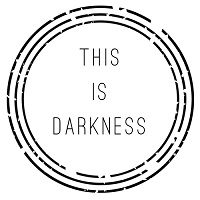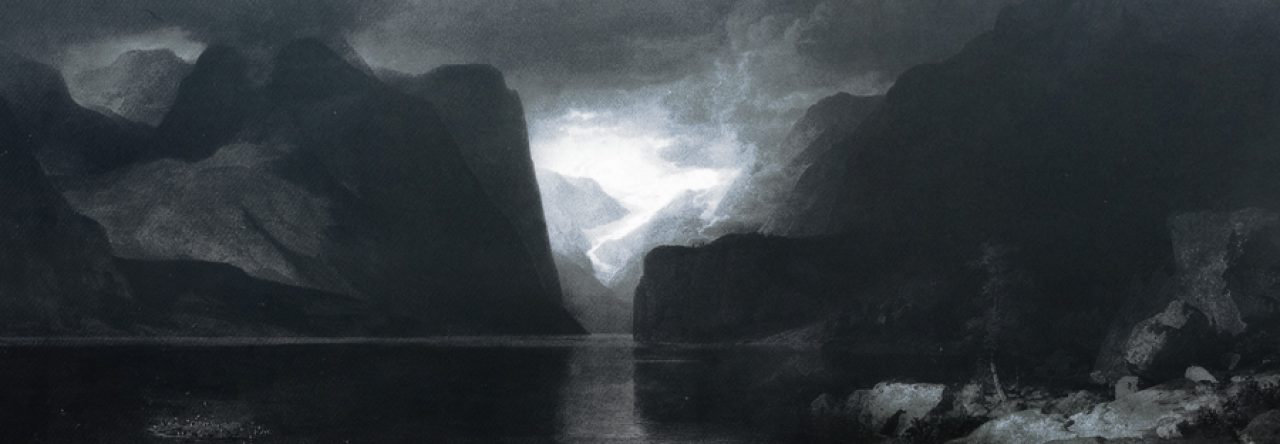6. Computers
a. Win or Mac?
Treha Sektori: Mac
protoU: Mac
Aegri Somnia: Windows
Stuzha: Windows, but I use it just for Adobe Audition. I also have some driver issues to plug-in my TonePort to Linux. However, I’d like to do my next album in Linux!
Seesar: For me, I utterly despise Apple computers. I find them exceptionally user unfriendly and extremely difficult to use and infinitely over-priced. I, therefore, use Windows and Linux machines. That being said, the main thing is that you are comfortable with your computer. If you are familiar with Macs, use them! Both Apple and Windows machines can support professional software and hardware. It is entirely a preferential decision, but do make sure that your equipment is professional. That is the main issue.
Skadi: PC
Shrine: PC all the way. Don’t get me wrong, I’m not saying Macs are bad, not at all. It’s just their price/performance ratio that is really poor, compared to PCs. For the money you will spend on an average Mac you can build a monster PC that will do a better job for you. But that’s the reality with all Apple devices, you are paying extra just because of the brand. It’s a waste.
Ugasanie: I use a budget laptop Samsung, with Windows 7.
b. What is the most important component in a dark ambient computer studio? (ie. Processor, RAM, Sound Card, etc.)
Treha Sektori: A sound card that is solid, I’d say.
Kammarheit: People have managed to make good music even before the advanced components. Don’t get too caught up in the ideal setup. Start with what you have or can afford. For me, music has always been about mood and atmosphere. Exploring and expressing the inner worlds. You can do this with very little equipment. It is only out of curiosity and maybe necessity that I have picked up what little I know about the technical aspect of music making. I often talk to people who are postponing their creativity because they are waiting for the perfect hardware or software and it makes me a bit sad.
Aegri Somnia: Active near field monitors, headphones and soundcard.
Stuzha: CPU is quite important to do some heavy real-time processing and then sound rendering. Then I’d prioritize sound card and RAM. Don’t forget about audio monitors do not be afraid to spend more on them than on your laptop!
Mebitek: As for all electronic music studios, you need a good CPU and as much RAM you can buy.
Seesar: All these pieces of equipment are important. Good processors will reduce rendering time, if you are working with high bit rates or adding lots of effects to a large number of tracks within a mix. RAM is also very important for this sort of heavy processing, and it is also useful for multitasking during a session, but I have been able to work with 4-8GB of RAM, easily, on my machines. More is better, of course. Soundcards are extremely important. Getting a clean sound is essential. Do not skimp here. You want the highest quality soundcard you can get within your financial means. I also prefer a lot of screen real estate, because I find it easier to edit fine details and analyze spectrum views of recordings, as well as I often work with a mix of ten to twenty tracks in one piece. Having multiple, large monitors has proven to be very useful and increased my efficiency noticably.
Skadi: The most important component is the sound interface. I recommend to use a high quality interface with several I/Os, and the capability to provide low latency signal processing. CPU is also important to have enough power to host the virtual instruments, if applicable. RAM is less important, since the common 16GB nowadays are usually enough.
protoU: I think it’s mostly the environment. I can’t create ambient when I’m in a rush or something is not right in the room. I need to have that tranquil sense. It will all be reflected in the music.
Ugasanie: Soundcard.
Shrine: The most important things are, of course, the clock speed of the processor, and the performance of the I/O driver of your audio interface (sound card). In a professional setup the audio interface is usually not a part of the computer, but even if it is, the performance of the sound driver is still vital for the DAW. A higher number of processor cores can help too, in case your DAW properly supports multitasking. And if you will be using sample based instruments (especially the orchestral and choral ones where every tone and articulation is coming from a separate audio file), then the RAM size will be a factor too, as the DAW will load all the samples into RAM.

Shrine, PC tower setup.
c. What do you think are the minimum requirements for these components? (ie. i5 processor, 6gb or RAM, etc.)
Skadi: An i5 Quadcore is good enough, unless you have a lot of VST instances running in parallel. Since most VSTs are not able to use multicore, and run on one core of the CPU (however, a multicore enabled DAW will distribute the VST instances onto the multiple CPU cores), a decent CPU speed is also recommendable. 8gb is the minimum for serious music production, but 16gb+ is recommended.
protoU: It always depends on the DAW, and what you are aiming for. There are different techniques to make your program work better with little resources.
Shrine: This very much depends on how many virtual instruments and virtual effects you are using. If you only record and mix audio, without processing, and without synthesis, you can go even with a low spec computer. The more virtual instruments and virtual effects you use, the more computing power you will need.
Aegri Somnia: I run smooth with Intel Core i3 and 4gb RAM for most situations. Newer stuff like Diva and other analog emulators are very CPU hungry, so if you run more than two of them, it’s wise to update your processor and RAM.
Stuzha: I’d say indeed i5 intel, 8gb RAM should do. I use my 8 year old Lenovo G780 laptop, but thinking of upgrading.
Mebitek: An i7, 16gb ram, and a solid-state hard disk.
Seesar: It is less important to be concerned with minimums, and more concerned about compatibility. As long as you are able to ensure your programs run smoothly and your end result is professional. I run a quad i5 on one machine and a duo i7 on another. Currently, both machines have 8GB of RAM. I find they are effecient to conduct my work. But, I am saving up to upgrade to a newer machine in the new year.
d. What would you say is the best computer set-up for a studio?
Seesar: The main issue is simply being able to do what you need your computer to do. For sampling, you will need more RAM. For mixing and mastering, you need more processing power. You will need scratch disc and storage space, too, so be sure to have lots of space on your hard drive(s). I have three 1TB hard drives, two 750GB hard drives, and one 4TB drive. The difference between a high end duo core and a mid grade quad is not significant, in my experience. A higher processing speed, however, can be very useful. Consider getting a high speed processor, at least 4GB of RAM (preferably more), and have at least 500GB of space to store tracks and use and workspace for your audio programs.
Skadi: That’s a difficult question, since the answer is based on the budget someone is willing or able to spend. You can have a decent music production rig for roughly $1000 including a good USB interface (e.g. Focusrite Scarlett), but you can also spend a lot more and get a $10,000+ rig, including a RME Hammerfall, Neumann mics etc etc.
Shrine: Get the fastest processor you can afford. Make sure it’s not a “low power” model. An energy saving processor will probably fail you on music production, even if it’s a very fast one.
e. What would be the most bare-bones acceptable set-up?
Seesar: Maybe an i3 with 2GHz speed, and a hard drive with 250GB. It would be slow, of course. But, that could get you through making a few tracks, until you can upgrade.
Skadi: An AMD or intel based Quadcore CPU, 8gb RAM and the usage of ASIO4ALL, to get low latency on onboard soundcards. A dualcore CPU is also acceptable, if you’re willing to deal with the limitations of instruments and effects.


Leave a Reply